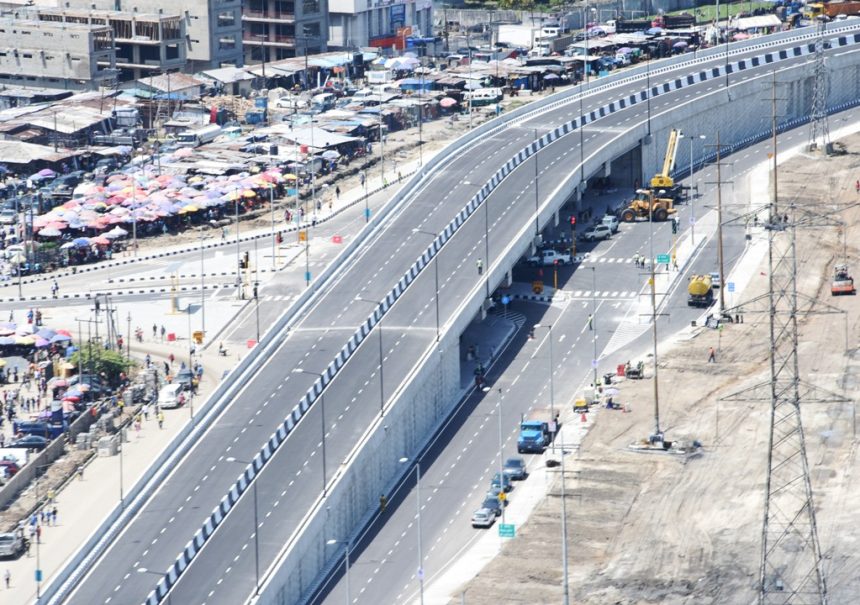Efforts to reinforce Lagos’ aging infrastructure continue to gain momentum, with strategic interventions underway along the Outer Marina shoreline and the Third Mainland Bridge.
A recent oversight visit by lawmakers provided a snapshot of the progress being made. The Federal Controller of Works in Lagos, Mrs. Olukorede Kesha, offered insights into the state-backed shoreline fortification project, now advancing steadily despite initial setbacks. She revealed that structural work along the waterfront has reached roughly one-third of completion, addressing longstanding vulnerabilities in the area’s coastal defenses.
The project, which involves replacing old sheet piles with a durable concrete barrier, is expected to significantly prolong the integrity of the adjacent road network. According to Kesha, the lifespan of the thoroughfare has been extended by over two decades as a result of these reinforcements.
Early delays—caused by the absence of technical schematics—have since been resolved, she noted, allowing the contractor to work within the 30-month timeframe. With eight months elapsed, confidence remains high that the job will conclude as scheduled.

Leading the delegation, House Committee on Works Chairman Akin Alabi applauded the technical strategy orchestrated by Minister David Umahi, describing the initiative as long overdue. “This intervention brings new life to an area neglected for decades. Without it, vital public assets would be at risk,” he said.
Attention also turned to the Third Mainland Bridge, where emergency maintenance has brought the structure close to full restoration. Kesha reported a near-total completion rate, with only a few areas—primarily between Adeniji and the Falomo roundabout—still pending due to damage from unauthorized interference.
The scope of the bridge overhaul has been extensive, involving resurfacing, structural reinforcements, and the integration of advanced surveillance systems. New CCTV installations feed into a central monitoring hub, enhancing oversight of one of the nation’s most critical transport arteries.
Alabi noted the security implications of these enhancements, especially in light of previous incidents. “The final section must be completed urgently to avoid becoming a weak point,” he stressed, advocating for swift repairs and a firm response to vandalism.
He concluded by affirming the National Assembly’s support in facilitating budgetary backing, signaling legislative alignment with executive efforts to modernize Nigeria’s most populous city.



